At 110, Viola Brown credits faith for helping her through wars, pandemics and segregation
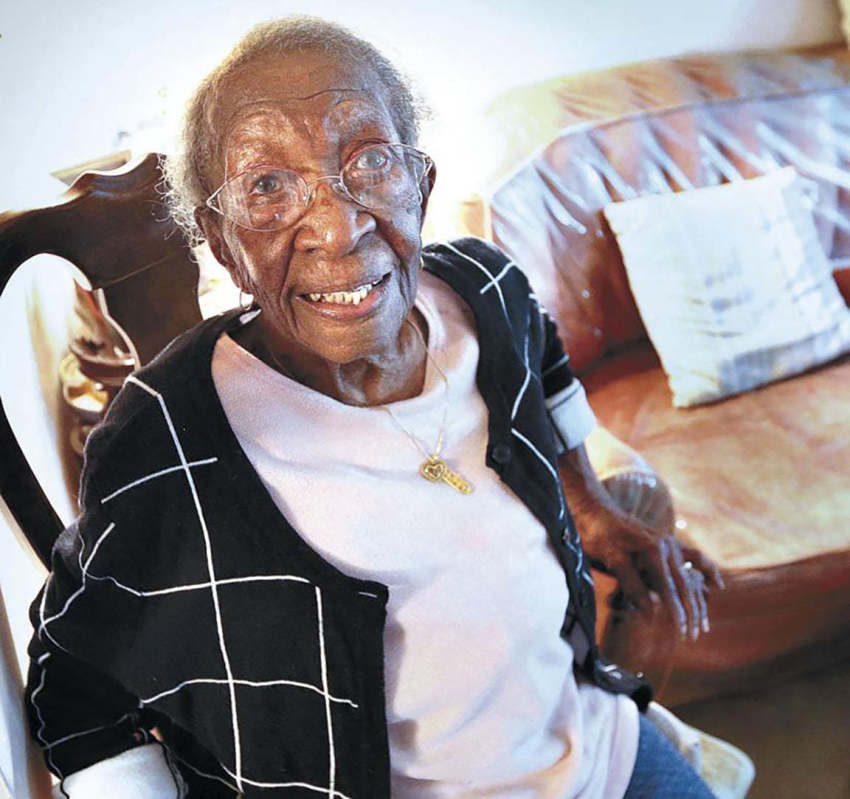
Viola Roberts Lampkin Brown has survived the worst of times.
When the “Titanic” sank into the North Atlantic Ocean on April 15, 1912, she was just an infant. She was not yet 3 when World War I began. She was still 6 when the Flu pandemic started in February 1918. And by the time she was 7, Brown was working as a domestic with her family in Clarke County, Virginia, and would spend decades living through segregation.
Brown, who was born on Oct. 4, 1911, survived it all to celebrate her 110th birthday on Monday, and even though she is now one of the oldest people in the world and is unvaccinated, she’s trusting in God to keep her through the COVID-19 pandemic, the deadliest disease event in U.S. history.
Her birthday on Monday pushed her into an exclusive club of older adults who are at least 110 years old, known as supercentenarians. And she credits her faith in God as the source of her longevity.
“He wakes me up in the morning. He tells me what to do. I don’t worry about things,” Brown said in a late evening interview with The Christian Post from her home in Berryville, Virginia, where she outlived two husbands — a deacon and a pastor — as well as her son.
There are only 17 people in the world who have been verified as older than Brown, according to the Gerontology Research Group, and all of them are women. That’s why The Clarke County Board of Supervisors proclaimed Oct. 4 as Viola Roberts Lampkin Brown Day.
“Over the course of more than a century, Viola Roberts Lampkin Brown has witnessed Clarke County's progress and growth, which reflects the growth of our nation, and she has made extraordinary memories that are woven into her unique narrative of American history,” the proclamation signed by Board Chairman David Weiss said. “Centenarian Viola Roberts Lampkin Brown, who still lives in her Josephine Street home where she maintains a daily routine that includes spiritual reflection, now joins a small but extraordinary group of individuals known as supercentenarians.”
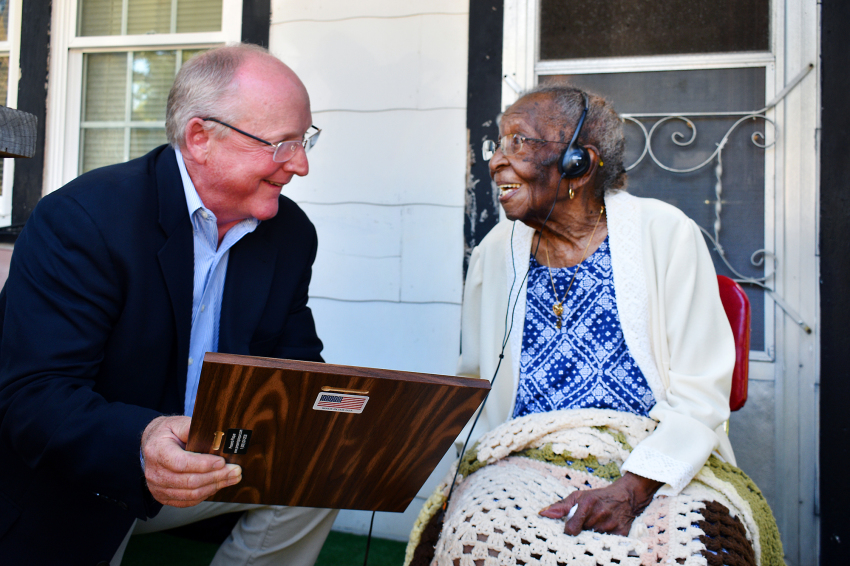
Brown’s nephew, Andrew Roberts, who adores his great-aunt for her infectiously inspiring lifestyle, says he, too, believes her longevity stems in part from her exemplary life of faith, which he compares to the “saints.”
“My personal experience has been nothing but love and joy whenever I’m in her presence. There’s never one minute that Jesus doesn’t drip off her lips. It’s as if she embodies Him. Everything she talks about and does, she gives honor and praise to God. I mean everything. She’s a literal [believer],” Roberts told CP.
“I think one of the things, in terms of her longevity, has to do with her faith. The lifestyle [she practices]. She doesn’t let a lot of things bother her. She has great capacity either to tolerate stress or just kind of eliminate it for the most part because she is centered. She’s centered on something greater than herself,” he added.
Roberts, along with Brown’s 79-year-old daughter, Vonceil Hill, her only living child (she had two), agree that her faith kept her in such perfect peace, she never needed prescription drugs until she was 101.
“She never took any prescribed medication until she was 101,” Hill explained in an interview with CP. “They put her on a low dose [medication] for high blood pressure.”
Before that, Brown lived on a steady diet of Scripture, and food including green beans, potatoes and tomatoes she grew in a garden she tended until she was about 100.
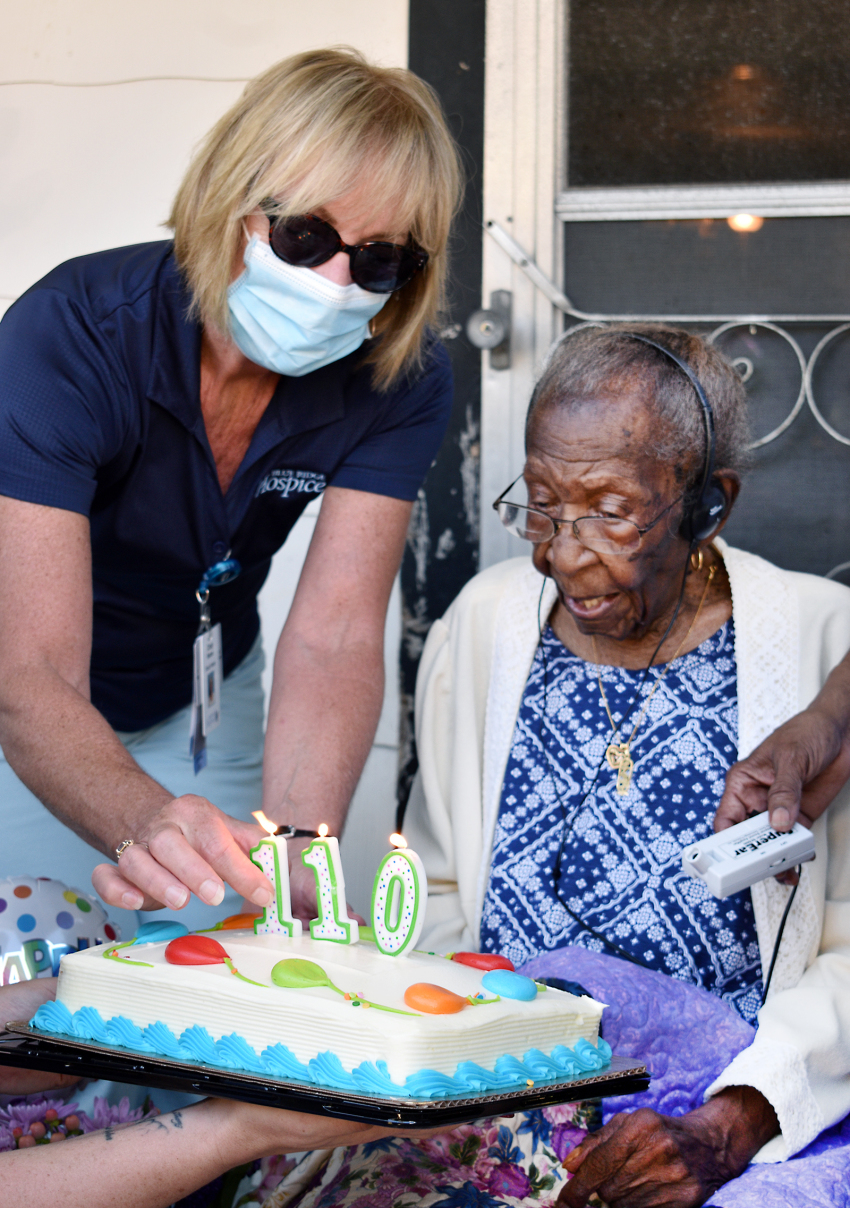
After a mild stroke in May 2020, then a fall earlier this year, Brown has slowed down a bit cognitively and physically. She now requires hearing aids and needs a wheelchair to get around. But she just might pray herself into walking independently again, as she did in 1960.
Brown is the youngest of 13 children and is the longest living member of her family. When she and her parents moved to Clarke County in 1918, they worked at the Springfield Farm as laborers and domestics, according to the proclamation.
“As children, we lived on the farm and weren’t allowed to cross the railroad tracks,” she recalled in a 2016 feature by Cathy Kuehner in The Winchester Star, who now works for Clarke County. “I waited on tables, mopped the floor and washed dishes.”
In 1960, while working for a family on S. Church Street in downtown Berryville, a stove exploded and injured the supercentenarian’s legs. Doctors thought she would never walk again, but the determined Brown would manage stairs by “going up and down on her bottom,” Hill told The Winchester Star.
Hill told CP that her mother told her, “'I’m gonna walk. God told me I’m gonna walk.’ And sure enough, she was home for about six months or a little more and she started walking.’”
She revealed that her mother would later tell her how she fought ovarian cancer after her late brother was diagnosed with cancer.
“I didn’t find out until my brother got sick. He had cancer and she said, ‘Let me tell you this: I had it, I didn’t tell you all.’ She didn’t tell my dad because, she said, ‘I could see him down the street telling people, you know my wife got cancer.’ And she said, ‘I didn’t tell anyone.’
“And like the doctor said, ‘If you worry about it, that’s what takes most people away.’ She said, ‘I didn’t worry about it. I put it in God’s hands.’ And that time, it had been 33 years since she had had it when my brother got sick with cancer,” Hill explained.
Whatever her mother wants from God, Hill said, she has witnessed her getting them through prayer.
“She asks God for things and usually it happens,” Hill said. “She prays with some people who are sick [and they get better].”
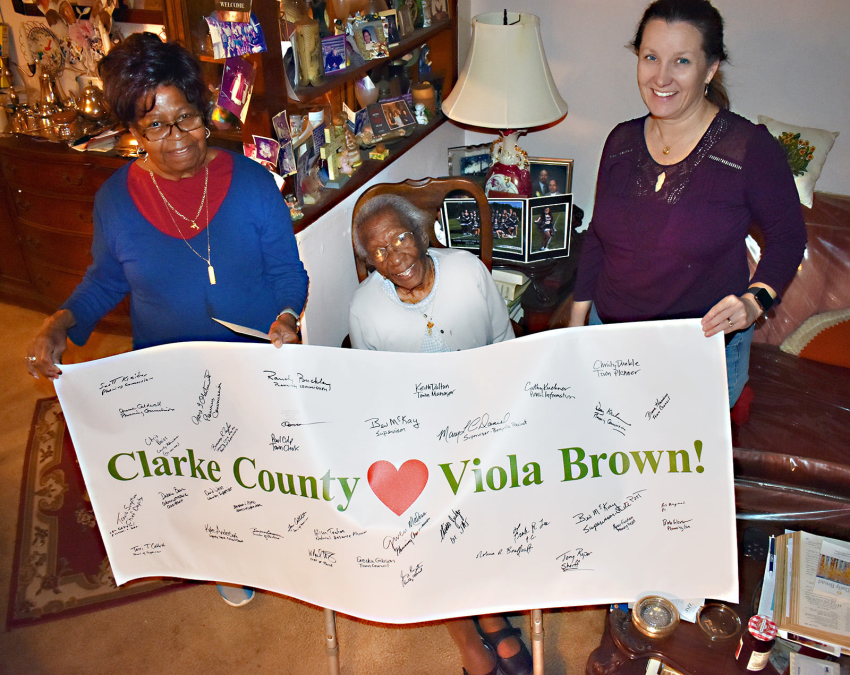
Hill also explained how her mother’s faith moved in her own life.
“I had a daughter that got messed up in drugs and she got time [in prison]. And she said, 'God showed me she is coming out.' They gave her [a] life [sentence] plus 30 years. And she told us that she saw this paper [in a vision] … that she was gonna be free. And sure enough, she got out after 11 years,” said Hill, who, unlike her mother, takes medication for high blood pressure, cholesterol and diabetes.
Brown is a member of Zion Baptist Church of Berryville, which sits along Josephine Street in the historically black section of the town now known as the Josephine City Historic District. Her house also sits along Josephine Street and is less than a five-minute walk from the church.
Since the pandemic, she hasn't spent much time in person with her congregation, but Hill said her mother was very active in the church during her younger years.
“We were in church from morning till night. She organized the Sunday school up there. She used to knock on everyone’s door who had children and asked if she could pick up their children or somebody from the church could pick up their children,” Hill said. “She was one of the deaconesses of the church; she was the treasurer for 34 years. But she’s been a great mentor. I believe that you need God in your life in order to get through the day.”
Brown loves to talk about her favorite Scripture: Psalm 27.
“She talks about the 27th Psalm. That’s her favorite,” said Roberts. “The impact of her is the embodiment of love, even though we fall short. It’s that spirit that keeps you going because she’s always going to remind you. Whether it’s obvious or overt, it’s just who she is. You automatically feel good when you’re around her. She’s got that positive energy, that spirit-filled energy.”
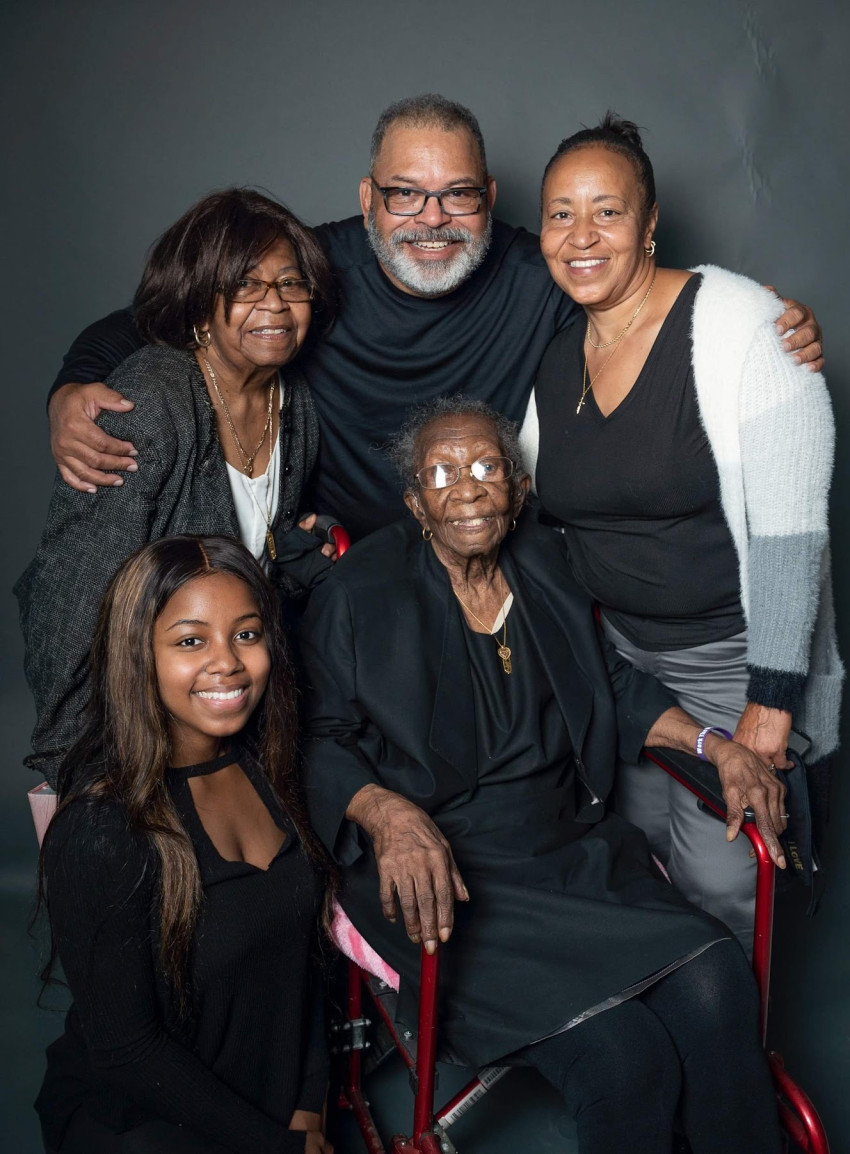
Roberts said his great-aunt suffered a mild stroke last year, days after his oldest daughter passed away in her early 30s. She had to go to the hospital for treatment, but she didn’t stay long.
“She went to the hospital. She hates hospitals. She wanted to go home and pretty much got out in three days,” Roberts said.
“She wasn’t completely normal [after that],” he continued. “She lost a lot in terms of cognition a little bit and sometimes she forgets. But I tell her, ‘Aunt Viola, don’t worry about that.’ She looks at me and says, ‘Sometimes I forget my name.’ I say, ‘That’s OK Aunt Viola. We know who you are.’”



























